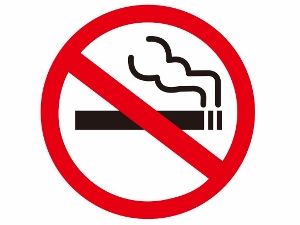

<p><img class=" alignright size-full wp-image-1192" src="http://schoolnewsnz.fastrackdev.com/wp-content/uploads/2014/11/Capture_3_300x225.jpg" alt="Capture 3 300x225" style="margin: 5px; float: right;" width="300" height="225" />Breaking research from Canada lends unequivocal weight to calls for New Zealand to ban smoking in vehicles carrying children, says the Smokefree Coalition.</p>
<p> <!--more--> </p>
<p>&#8220;What the new research shows,&#8221; Smokefree Coalition Director Dr Prudence Stone said, &#8220;is that children are protected from second-hand smoke by international law, but that their right to health is overridden by rhetoric about adults&#8217; rights not to have their private lives intruded upon.</p>
<p>&#8220;Furthermore, it shows most people just about everywhere support such a ban and that they have been well-received in jurisdictions where they are already in place.&#8221;</p>
<p>Dr Damian Collins, one of the study&#8217;s authors from the Human Geography Program at the University of Alberta, said banning smoking in vehicles would help New Zealand meet its international commitment to protect children, and the Government&#8217;s Smokefree by 2025 goal.</p>
<p>&#8220;We can&#8217;t have a smokefree nation without smokefree cars for kids,&#8221; he said.</p>
<p>The research points out that the World Health Organization (WHO) declares that enjoyment of the highest attainable standard of health is a fundamental right of every person. The UN Convention on the Rights of the Child articulates a commitment to protecting children&#8217;s right to health. The WHO Framework Convention on Tobacco Control, to which New Zealand is a bound signatory, asserts second-hand smoke is a threat to these health rights, and imposes a duty on governments to protect &#8216;all persons&#8217; from second-hand smoke exposure.</p>
<p>The researchers examined print media reports in Canada and found children&#8217;s right to health was mentioned much less frequently than competing adult rights and that children&#8217;s voices were largely absent from the record.</p>
<p>They then formed focus groups consisting of 23, 10 to18 year-olds and spoke with them about their experience of second-hand smoke exposure in vehicles as well as their understanding of rights. All but one participant expressed unreservedly positive views of the recent ban on smoking in vehicles enacted in Alberta, Canada, while one was ambivalent. The most commonly voiced reason for support was the notion of protection from harm.</p>
<p>&#8220;Without exception, the young participants said they disliked (or &#8216;hated&#8217;) being around smoke and smokers, due primarily to the smell and having trouble breathing,&#8221; Dr Stone said.</p>
<p>&#8220;They were very aware of the health risks, especially to them as children, but many said they rarely spoke up when it happened to them for fear of angry reactions.</p>
<p>&#8220;What this reveals is that there is a very real power imbalance between children and adults, and children often feel powerless to defend their own rights, even among their family members. Enacting a ban would be one specific measure New Zealand could take to protect that right. In fact we&#8217;re bound to by the international agreements we&#8217;ve signed.&#8221;</p>
<p>Parents Centre CEO Viv Gurrey points out this would include most smokers.</p>
<p>&#8220;One wonders whether our reluctance to impose this protective health measure is also due to fear that it&#8217;s a vote loser. That would be a tragedy because our own research shows it clearly isn&#8217;t.</p>
<p>&#8220;Second-hand smoke kills up to 500 New Zealanders every year, but the Government&#8217;s priority seems to be to ask the health sector to solve the problem by promoting healthy behaviour. All well and good but a simple ban would be quicker and more effective. </p>
<p>We&#8217;ve done exactly that with cell phones and driving and that has been well accepted.</p>
<p>New Zealand national youth survey results found 23 per cent of 14 to15 year-olds reported in-vehicle exposure to second-hand smoke over the last seven days in 2012.</p>
<p>New Zealand research from 2011 found negative role-modelling was also a concern and that observing family and friends smoking increases a child&#8217;s risk of tobacco uptake.</p>
<p>The Canadian research is entitled <em>Smoking bans for private vehicles: children&#8217;s rights and children&#8217;s voices</em> and was published online in Children&#8217;s Geographies on November 17. The authors are Morgan Tymko and Damian Collins from the Human Geography Program at the University of Alberta.</p>

NZEI Te Riu Roa is considering legal action against the government for the disestablishment of…
NZQA is implementing AI-marking for all Year 10 written assessments from this year onwards, following…
Teaching personal financial responsibility isn't enough. Children should be taught broader economic context, argue New…
When students can't hear the teacher, they can't learn properly. Sound quality matters in education…
The Garden City is rich with learning opportunities, no matter what subject or part of…
Teaching Council of Aotearoa launch school leaders’ stories project with Unteach Racism to challenge institutional…
This website uses cookies.